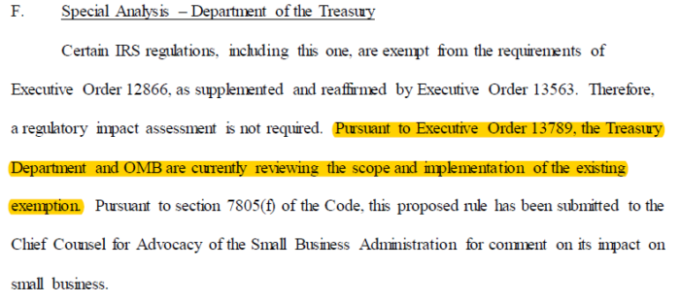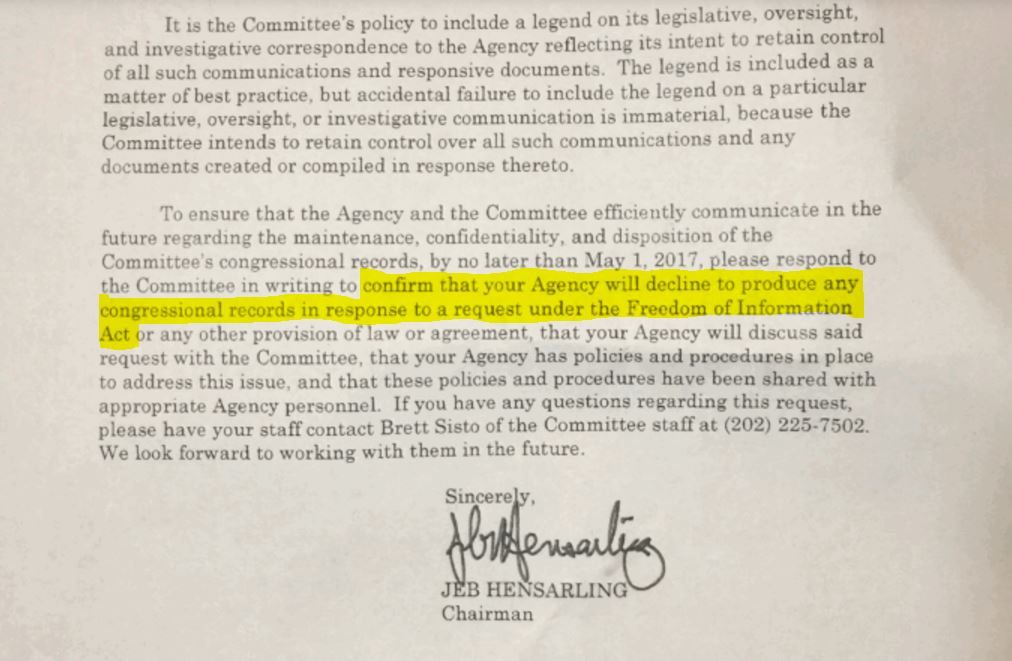Washington, D.C. – Cause of Action Institute (“CoA Institute”) today led a coalition of 17 organizations in sending a letter to President Trump and senior administration officials urging them to hold the IRS accountable by working to end the agency’s practice of dodging oversight of its rules.
CoA Institute recently issued an investigative report titled Evading Oversight: The Origins and Implications of the IRS Claim That Its Rules Do Not Have an Economic Impact, detailing how the IRS created and expanded a series of self-bestowed exemptions from three important regulatory oversight mechanisms. The IRS created these exemptions by claiming that the economic effects of its rules flow from the underlying statute and not its regulatory choices.
The letter states:
This IRS practice denies Congress information about IRS major rules that should be reported to the Government Accountability Office under the Congressional Review Act. It also hinders the White House’s ability to fulfill its constitutional obligation to supervise the Executive Branch by conducting oversight of IRS regulations pursuant to Executive Order 12,866. And it impacts the public’s right to learn about and comment on the economic impact of the IRS rules that are subject to the Regulatory Flexibility Act… The IRS should live by the same rules of administrative law and agency oversight as the rest of the Executive Branch.
The letter was sent to President Trump, Secretary of the Treasury Steven Mnuchin, Office of Management and Budget (“OMB”) Director Mick Mulvaney, and Office of Information and Regulatory Affairs (“OIRA”) Administrator Neomi Rao.
The letter urges the Department of the Treasury and OMB to withdraw from a decades-old agreement allowing the IRS to avoid White House review of its rulemakings. Last week, two former heads of OIRA, Susan E. Dudley who served under President George W. Bush and Sally Katzen who served in the Clinton administration, wrote in The Wall Street Journal that this longstanding agreement has been abused and agreed it should be reconsidered.
Further, the coalition letter firmly holds that the IRS should not be permitted to claim that the economic impact of its rules is due to the underlying statute and not its regulatory choices.
The full letter can be found here.
The following groups signed:
American Business Defense Council
Dick Patten, President
American Commitment
Phil Kerpen, President
Americans for Prosperity
Brent Wm. Gardner, Chief Government Affairs Officer
Americans for Tax Reform
Grover Norquist, President
Association of Mature American Citizens
Dan Weber, President & CEO
Campaign for Liberty
Norm Singleton, President
The Carlstrom Group
Bob Carlstrom, President
Cause of Action Institute
John Vecchione, President & CEO
Center for Freedom and Prosperity
Andrew F. Quinlan, President
Council for Citizens Against Government Waste
Tom Schatz, President
Family Business Coalition
Palmer Schoening, Chairman
Freedom Partners Chamber of Commerce
Nathan Nascimento, Executive Vice President
FreedomWorks
Jason Pye, Vice President of Legislative Affairs
Hispanic Leadership Fund
Mario H. Lopez, President
National Taxpayers Union
Pete Sepp, President
Taxpayers Protection Alliance
David Williams, President
Tea Party Patriots
Jenny Beth Martin, President
For information regarding this press release, please contact Zachary Kurz, Director of Communications at CoA Institute: zachary.kurz@causeofaction.org.

